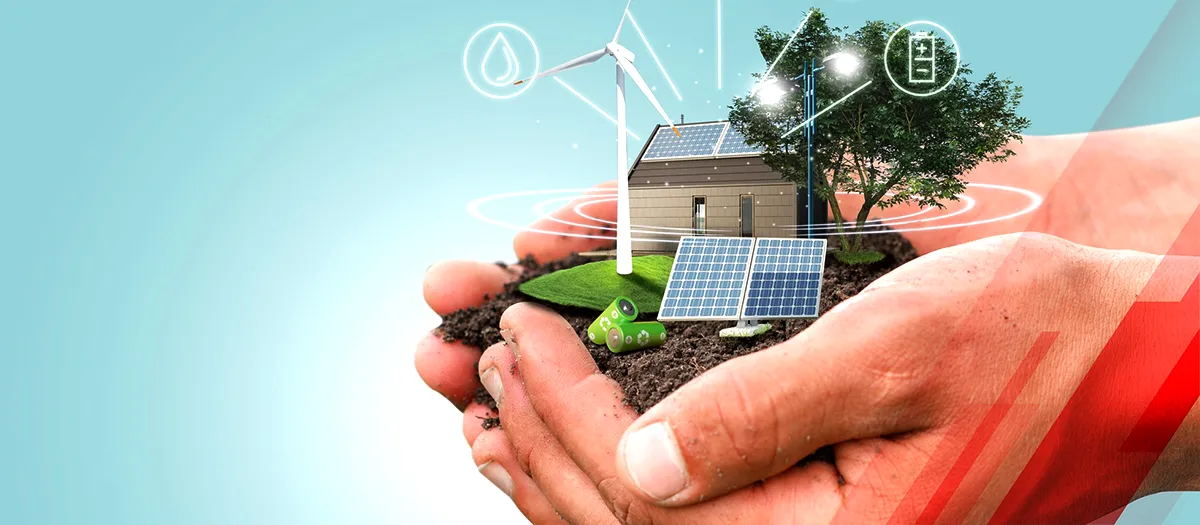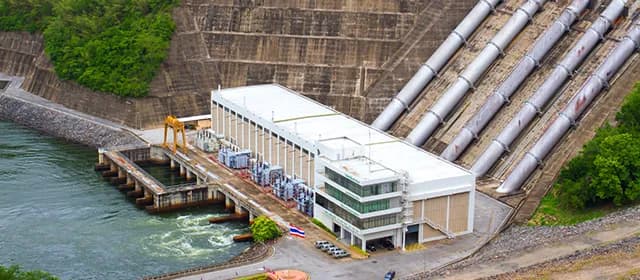In an era of increasing environmental concerns and the pursuit of sustainable power sources, solar energy has emerged as a frontrunner in the race toward a greener future. Solar energy harnesses the power of the sun to generate electricity, providing a clean and renewable alternative to traditional energy sources.
In this blog, we will explore the world of solar energy solutions, covering its definition, different types, use cases, benefits, and applications, and conclude with its transformative potential in shaping a more sustainable world.
What are Solar Energy Solutions?
Solar energy solutions encompass a range of technologies and systems that capture sunlight and convert it into usable energy. Solar panels, or photovoltaic (PV) panels, are the key components of solar energy systems.
These panels consist of multiple solar cells, which generate electricity through the photovoltaic effect. Solar power solutions enable the conversion of sunlight into electrical energy, which can be used to power homes, businesses, and even entire communities.
According to Kings Research, the Global Solar Energy Solutions Market is projected to reach $92.18 billion by 2030, growing at a compound annual growth rate (CAGR) of 15.12% from 2023 to 2030.
Why is There an Advantageous Shift Toward Solar Energy Solutions?
In the ever-evolving energy scenario, the solar industry is catching some serious waves thanks to the growing appetite for clean and sustainable power. People are moving away from conventional energy sources, and this shift is driving some exciting growth in solar – and it's not showing any signs of slowing down.
What's fueling this solar revolution? Well, for starters, the cost of solar energy systems is dropping, making solar power a more attractive player in the energy game. There's a global push to reduce the global reliance on fossil fuels, and solar energy is stealing the spotlight as a cleaner alternative.
However, it's not just about cost and climate consciousness – it's also about smart solutions. Energy conservation ideas, along with some friendly government incentives and policies, are giving solar power a boost, creating opportunities for the solar energy market to thrive. Another interesting thing to notice is that while top solar energy tech solutions are increasingly involved in the utilization of solar power in the U.S., it's surprising that only 0.2% of the total renewable energy potential was utilized in 2020.
What are the Different Types of Solar Energy Solutions?
Let’s look at the different types of solar energy solutions available.
1. Grid-Tied Solar Systems:
- Grid-tied solar systems are connected to the electrical grid, allowing excess energy to be fed back into the grid.
- These systems enable homeowners and businesses to offset their electricity consumption and potentially earn credits through net metering.
- Grid-tied systems are cost-effective and require minimal energy storage, as they rely on the grid for power during periods of low sunlight.
2. Off-Grid Solar Systems:
- Off-grid solar systems operate independently of the electrical grid, making them ideal for remote locations or areas with unreliable grid access.
- These systems incorporate battery storage to store excess energy generated during the day for use during the night or on cloudy days.
- Off-grid systems provide energy self-sufficiency and can be customized to meet specific power requirements.
3. Hybrid Solar Systems:
- Hybrid solar systems combine solar energy with other renewable sources, such as wind or hydropower, as well as traditional power sources like diesel generators.
- These systems offer increased reliability and independence, as they can utilize multiple energy sources to ensure a constant power supply.
- Hybrid systems are well-suited for areas with fluctuating weather conditions or limited renewable resources.
4. Cloud solar energy solutions:
- These involve the integration of cloud computing technology with solar energy systems.
5. Green solar energy solutions:
- These solutions encompass a range of environmentally friendly practices and technologies associated with solar power generation.
Decoding the Use Cases
Given below are the various use cases of solutions for solar energy:
1. Residential and Commercial Applications:
- Solar energy has gained popularity among homeowners and businesses, offering significant cost savings on electricity bills.
- They provide a reliable and sustainable source of power, reducing reliance on fossil fuels and lowering carbon emissions.
- Solar solutions also enhance energy independence, allowing individuals and organizations to take control of their energy production and consumption.
2. Rural Electrification:
- Solar energy plays a crucial role in providing electricity to remote and underserved areas that lack access to the electrical grid.
- They offer a practical and sustainable solution for powering homes, schools, healthcare facilities, and other essential services in rural communities.
- Solar energy can transform the lives of individuals in these areas, improving education, healthcare, and overall quality of life.
3. Industrial and Commercial Applications:
- These solutions are increasingly adopted by industries and commercial enterprises to meet their energy needs and reduce operating costs.
- Large-scale solar installations can power manufacturing plants, warehouses, shopping malls, and other commercial facilities.
- These solutions not only provide economic benefits but also contribute to corporate sustainability goals and environmental stewardship.
4. Environmental Benefits:
- These solutions offer numerous environmental benefits, including significant reductions in greenhouse gas emissions and air pollution.
- By replacing fossil fuel-based electricity generation, solar power helps combat climate change and improve air quality.
- Solar energy is a renewable and abundant resource, reducing reliance on finite fossil fuel reserves and contributing to a more sustainable future.
Final Takeaway
Solar energy solutions have revolutionized the way we generate and consume electricity, offering a clean, abundant, and sustainable alternative to conventional energy sources. From grid-tied systems to off-grid installations and hybrid setups, energy solutions provide versatile options for residential, commercial, and industrial applications.
With their cost savings, energy independence, and environmental benefits, these energy solutions are driving the transition toward a more sustainable and resilient energy future. By embracing these innovative solutions, we can reduce our carbon footprint, improve energy security, and create a cleaner and healthier planet for generations to come. The power of the sun is within our reach, and by harnessing it, we can pave the way for a brighter future.



